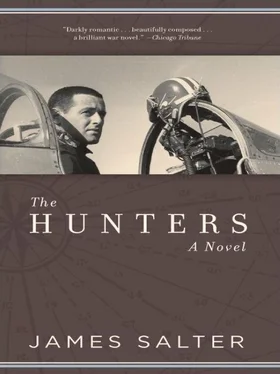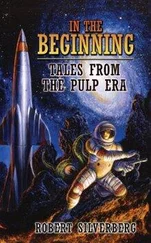“Get out of here,” Cleve ordered.
Pell smiled. He stood up, not in the least awkwardly, and left the room.
Cleve sat at the table for a time without moving. Then he tore the letter he was writing into pieces and threw them away.
The fresh days had arrived, the high winds. A sweep of seasons was rustling across the peninsula. It was a clamorous spring. The windows rattled incessantly through bright hours, and doors were ripped open when the wind slipped behind them. Through the rolling hills toward Seoul the scrub pine and occasional willows now seemed to shine. Everywhere were plots of ground that had been carved out and plowed. The earth looked rich but worn in the sunlight. Beside huts along the road the first signs advertising ice for sale appeared. The Koreans cut blocks of it out of the river all winter long and buried it in sawdust to sell when the weather turned hot. It was among the most abundant of their crops.
Daughters’s heart was no longer with them, but in the future, ten, nine, eight missions away. He had finished with the war, except in fact. The days were intolerably long for him. Even dreams could not fill them. He thought of nothing now but his sons and his wife, yearning to be with them again. He had cherished at one time, like the rest of them, visions of glory, but they had faded at last and seemed pale indeed beside the prospect of going home.
Daughters had succumbed. He was strolling with his sons through summer afternoons, taking them to streams and lakes he knew, showing them where the trout hid, the bass.
When he had been a boy himself, he had loved the fields best. He was always keeping animals he found while wandering home from school on autumn afternoons. Spring and summer, too, it was turtles and rabbits, snakes in a burlap bag, field mice, ducks, and dogs. Once it was three young hawks stolen from their nest. He trained them to his hand. When he went to college, the animals in the backyard remembered him from one holiday to the next.
The war took him away, and then marriage. When he was gone for good, his family set everything free. The rabbits went back into the meadows, the snakes slithered off, the field mice and chipmunks vanished, the turtles sunned their withered extremities in their old ponds. The hawks flew away to hunt for themselves. In letters from home, sometimes he would hear about them. They were the only ones that came back, returning singly to perch for a haughty minute or two on the backyard fence, recognizable by the peculiar, jerky movements of their heads. He often felt they were still his.
Something about him made Chung, the houseboy approach him more readily than any of the others, head bowed, talking in small, uncertain English. Chung. Even Daughters did not know his surname. He was only Chung, always dressed in discarded fatigues with everything too big for his thin frame. The sleeves were turned up, and the trousers, and his feet must have rattled within the heavy field shoes. He came from somewhere, some broken family, some hut in a poor village. They hardly noticed him as the days went by. He seldom spoke. He worked shyly. He shined shoes, made beds, washed glasses, swept floors, cleaned windows, scrubbed, polished, and dusted, and sometimes, when his work was finished, emerged from his unblinking timidity to play catch with the other houseboys. Off to the rear of the area, where they were not seen, they had erected a kind of chinning bar, and he might be there with them, laughing over things said in their own, birdlike language, competing with them in various contests. A call, however, and he would come immediately, throwing down the ball, or slipping on his jacket and leaving the chinning bar to come running. He was there every day from about eight in the morning until five at night. Where he ate or what, Cleve did not know. Sometimes they would give him a couple of candy bars, and though he might have been pleased to receive them, there was no telling from the poised, wide-eyed expression whether he took them out of politeness or with real gratitude. He was a strange boy, a tamed animal in many ways, and in others pitifully human and poor.
“He wants to go home for a few days, Cleve,” Daughters explained.
“Where’s your home, Chung?”
“Ansong.”
“Where’s that, Jim?” Cleve asked.
“About fifty miles south of here,” Daughters said.
“That’s a long way.”
Chung did not say anything. He looked at Cleve for a minute out of huge, dark eyes that it suddenly seemed might fill with tears, and then stared at the floor, resignedly.
“How many days, Chung?” Cleve asked.
“Two for walk to home, then two, then two for walk to here.
“Six days.”
“Do you want to let him go?” Daughters said.
“He deserves it.”
“I think so. He’s the best houseboy around here. Aren’t you, Chung?”
The boy smiled bashfully. He looked at Cleve.
“There’s nothing wrong at home, is there?” Cleve asked.
He shook his head.
“Is your father sick?”
“No father.”
“Oh. Your mother?”
“No.”
“Why do you want to go?”
“It’s his grandfather’s birthday,” Daughters interrupted.
“And he’s going to walk all the way to Ansong? Is that the only reason, Chung?”
“Yes, sir.” He looked at the floor.
“All right,” Cleve said. “They’re your feet.”
He went to his shelves and got two packages of cigarettes.
“Here. Presento. For your grandfather, you understand?”
The boy took them without any evidence of pleasure. Cleve felt moved to add something else that might be appreciated more. He reached into his pocket and took out some money. He counted it, eight thousand wuan in all. Chung was paid thirty thousand a month.
“Here, take this, too. You might need it,” Cleve said.
The boy did not want to accept it. Cleve forced it into the small, callused hand.
Chung kept everything he used or owned on the ledge of the window, and after Cleve had gone, he laid the cigarettes there on a piece of unfolded cloth. Pell happened to notice them when he came in. He had been down at the firing-in range with Hunter, checking the guns on his own ship. He had come to consider himself quite a gunner and liked to be present to supervise every detail. It was the same with the inspections of his airplane. Pell would discuss the fine points of maintenance with his crew chief, who was fortunately very voluble, while Pettibone or Hunter stood by and waited for him, but listening. He was a little like those golfers who are expert enough to refine the balance of their clubs with minuscule dabs of lead, and, regardless of what he knew, he was busily improving his dialogue all the time.
As he came in the door, he stopped to stare at the contents of Chung’s handkerchief.
“What’s he doing with the cigarettes?” he asked. “Whose are they?”
“Cleve gave them to him,” Daughters said.
“What in hell for? The only good thing about him was that he didn’t smoke.”
“They’re a birthday present for his grandfather. He’s going home on leave.”
“Leave? Who let him have that?”
“Cleve.”
“And a present, too, eh?” Pell thought about it for a moment and then opened the door. “Chung!”
The boy appeared quickly from around a corner.
“What’s this about your grandfather’s birthday? Is that right?”
“Yes, sir.”
“You’re taking a leave for that?”
“Yes, sir.”
“You don’t even have a grandfather, Chung,” Pell accused.
The boy stood silent and confused.
“Come on, Chung. Who are you trying to fool? You’ve probably got some twelve-year-old lined up that you’re aching to slip it into. Isn’t that right?”
Читать дальше












